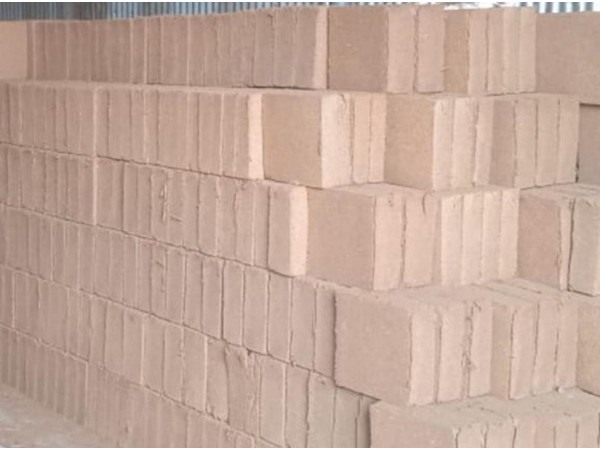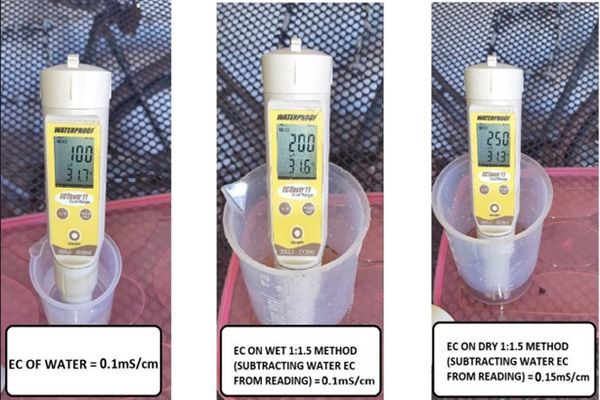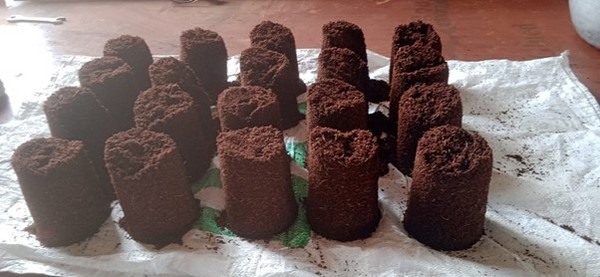Evergreen Exports in India manufactures and exports Coir pith, or cocopeat, a by-product of coir fiber extraction. The low EC premium 5 Kg Coir pith blocks the company produces have many applications and can be used in nurseries, greenhouses, home gardening, farming, horticulture, potting soil, hydroseed spay, and landscape. This soil conditioner is suitable for all types of garden plants, lawns, flowers, orchids, and vegetables in pots or ground and is extensively used to meet planting requirements since it acts as a natural organic medium.
Evergreen Exports knows that, on the international trade market, people tend to choose their preferred Coir pith based on three optimal quality metrics, namely EC (Electrical conductivity), Sand content, and Expansion volume. These three metrics have become a focal point for Evergreen Exports production, as Mohamed Raashid, General Manager of Business Development, explains.

Electrical conductivity
According to Evergreen Exports, the high electrical conductivity of coir pith is the major constraint when it comes to using it as a growing medium.
“The quality process involved in our manufacturing starts when sourcing raw materials. We generally use brown husks. Once the husks are disintegrated into fiber and peat, it is spread around the concrete cement floor that has been cleaned completely. Next is the washing process. We wash thoroughly and repeatedly to reduce salt content, taking the size of the bed into account to prevent salt from accumulating further after drying with sunlight. We then compress it into 5 kg blocks and activate the de-stoner that is part of that machine to remove any sand that was missed when washing and drying.”
The company regularly tests the samples using the Dutch 1:1.5 method; in their case, 100 mg of coco peat mixed with up to 150 ml of water. This ensures that the EC will be less than 0.2ms/cm.
“We confirm that every batch conforms to the required specs by increasing the number of samples for testing for any given order. For a specific order, we generally take the pith from the bed that is at least four months old, having been washed and dried repeatedly. We usually only start to test the EC levels after it has been washed and dried at least three times.”

Sand content
After being washed and dried, coir pith is required to be compacted to make it suitable for container transport. Evergreen Exports does this by feeding it into the compacting machine, which converts it into 5kg blocks. “Coir pith has the unique ability to withstand high compaction force without leaving its beneficial structure. Before compacting, the sand content and other foreign bodies like weed and seed etc.,has to be completely removed to negate its detrimental effects towards the overall quality of the final product.
This impeccable quality standard of Evergreen Exports is achieved by allocating a dedicated staff member to check that the de-stoner machine is not only activated throughout the compacting process but also cleaning the machine every 30 minutes during production to remove all the accumulated sand in the unit, thereby enabling the de-stoner machine to function seamlessly.
“If this action were to be neglected, there is a chance of sand being present in the final product even if the production units are equipped with a de-stoner machine. To prevent this, stringent quality control methods are adhered to in every stage of manufacturing.”
Expansion volume
Before they end up being used, the blocks of compressed coir pith are broken apart and moistened. The volume-to-volume expansion ratio on reconstitution is important to most international buyers, with 1kg being expected to expand to about 14 Litres when moistened.
“The expansion volume of Evergreen exports’ cocopeat, if sourced from the lowest pith bed, is on average 17 liters/kg. From the top pith bed, it averages 20 liters/kg. This is due to our selection of raw materials from regions where extraction of coconut happens after 60 days as opposed to 40 days. These extra days allow the pith to attain maturity while in the tree itself, allowing the product to attain additional expansion volume and exceptional water retention capacity. This gives us a competitive advantage over other producers of cocopeat on the market.”

Expansion volume = 20 Litres/kg
It is safe to say that a lot of work goes into achieving consistent and high-quality production. In their process, Evergreen Exports doesn’t consider any action, such as cleaning the de-stoner machine or allocating a dedicated staff member exclusively for it to be trivial. Their stringent quality control methods might seem much, but the results they achieve speak for themselves.
Or, as Mohamed puts it, “our hard work and dedication to satisfy our customers is shown in the quality of each cocopeat we deliver.”
For more information:
Mohamed Raashid
Evergreen Exports
Tel.: +919025498245 (Mohamed Raashid)
Tel.: +919444555111 (general number)
evergreenexportscocopeat@gmail.com
https://evergreen-exports.wixsite.com/evergreenexports
